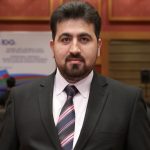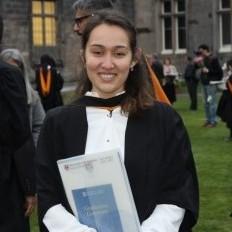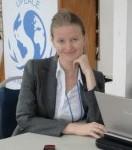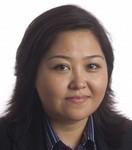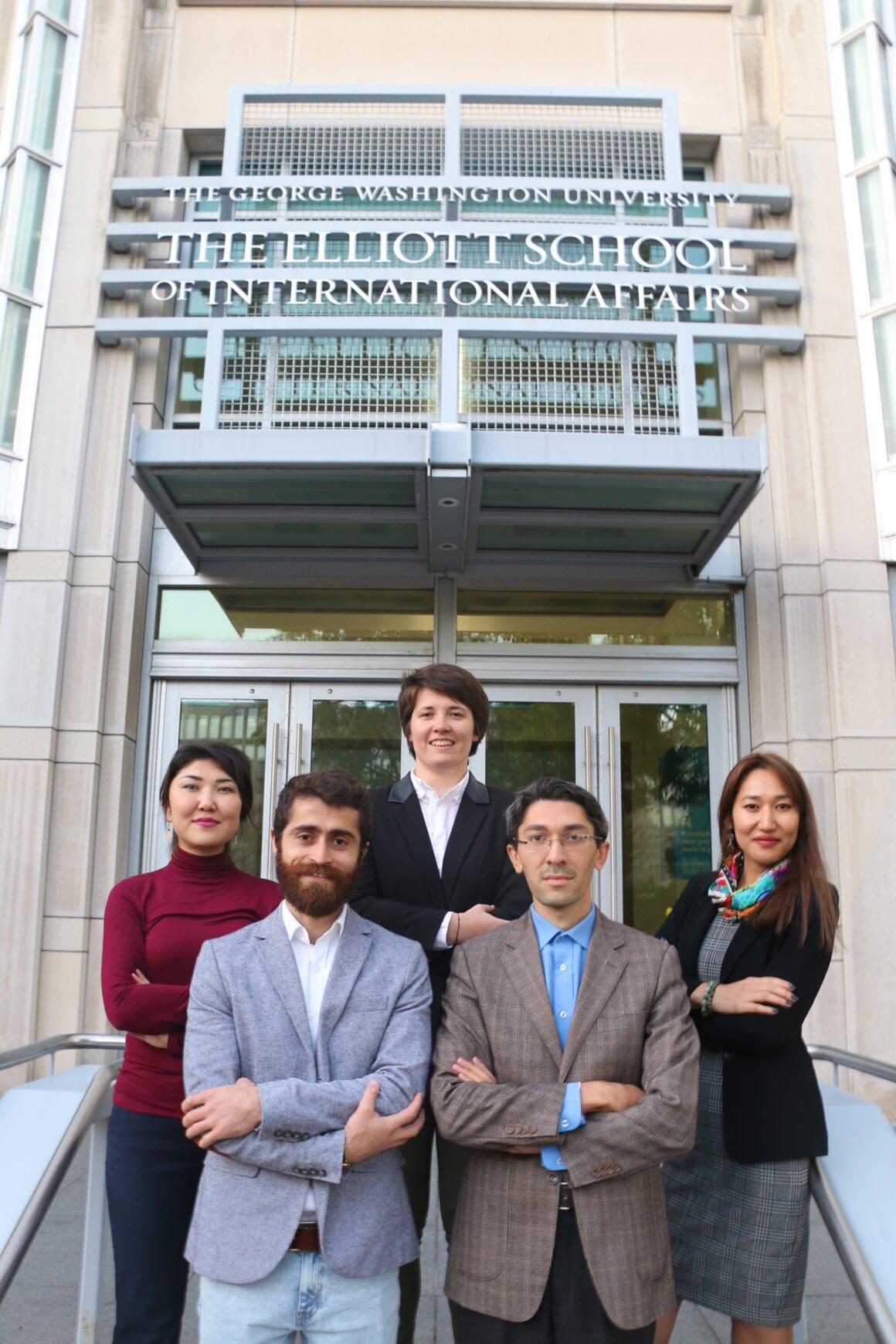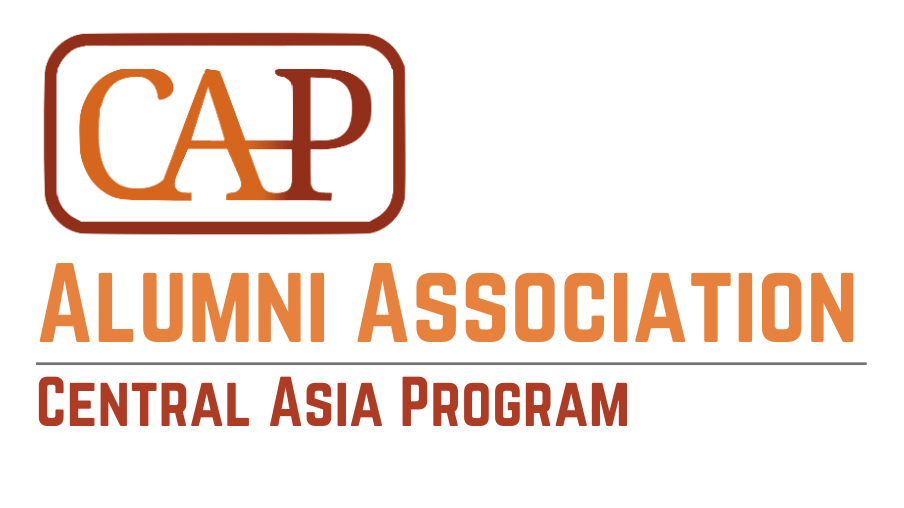
Welcome to our Alumni Community!
CAP Alumni Association is a network of Central Asian fellows who have participated in The Central Asia-Azerbaijan Fellowship Program (CAAFP) and the New Voices from Uzbekistan Fellowship Program at the Central Asia Program since 2013. In addition to publishing papers through our program and other well-known research platforms during their stay in Washington D.C., our alumni are currently actively engaged in their own projects in Central Asia and around the world. We are proud of our fellows and their valuable support for local scholarship in Central Asia. This page aims to bring our alumni community together and raise awareness of their projects and endeavors related to Central Asia.
Central Asia-Azerbaijan Fellowship Program (CAAFP) Fellows
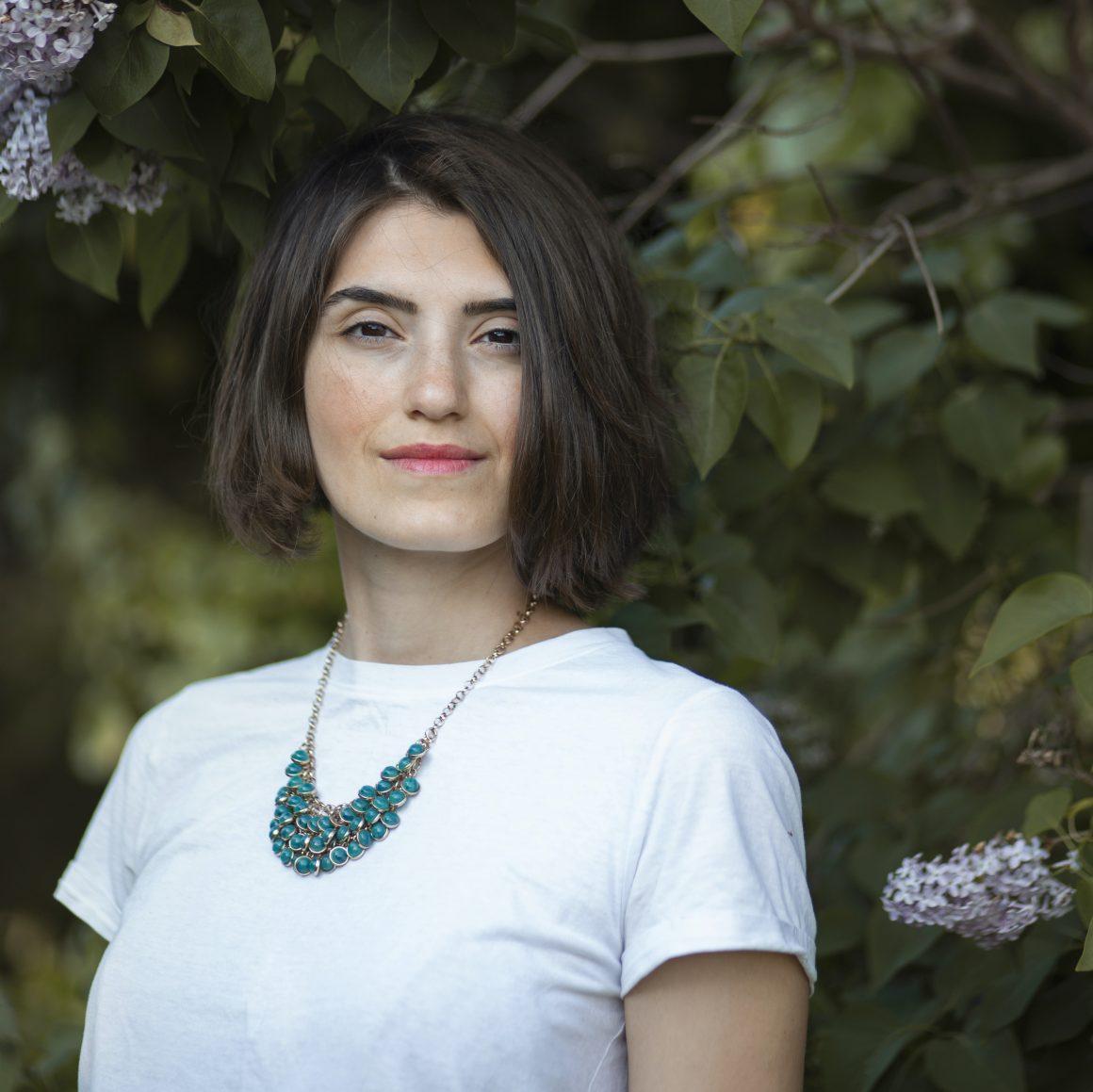
Ilaha Abasli’s research at GWU explores ways of integrating local (grassroots) experience and knowledge into sustainability and development policies in the post-Soviet context (specifically Azerbaijan). She is a PhD researcher at Institute of Social Studies, Erasmus Rotterdam University. Ilaha holds a Master’s degree in International Development and Emerging Economies from King’s College London. She is also engaged in international development and sustainability consultancy work with the FAO (UN), the GIZ, and local NGOs. Besides her fieldwork and research, Ilaha has taught “Economic Development Models” to graduate students at Azerbaijan State University of Economics. Her broader research interests include the circular economy and inclusive development, particularly in the context of developing economies; ways of scaling up frugal local innovations/solutions to the policy level; and fostering sustainability in emerging economies through participatory policies. Ilaha also co-founded the Azerbaijani organization Femiskop—Feminist Research Collective, which curates critical content on gender, environmental, and socio-economic justice issues.
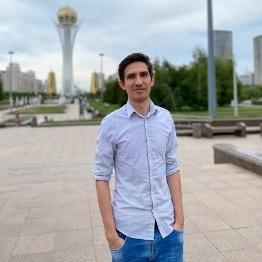
Rustam Muhamedov’s research at GWU focuses on Turkmenistan’s youth studying abroad, their knowledge of gender issues in Turkmenistan, and their willingness to engage with addressing these issues. Rustam is an independent researcher who focuses in particular on Central Asia and Turkmenistan. His research interests include political and security developments in the region, particularly in Turkmenistan; digitization initiatives; cybersecurity; youth; and education. He has diverse work experience in the fields of education and research. In addition, he has experience of engaging with the OSCE network, having formerly been an intern on the Central Asia Desk at the OSCE Secretariat and participated in the ECPR/ODIHR Summer School on Political Parties and Democracy and several of the OSCE’s youth-focused initiatives. Rustam holds a Master’s degree in International Relations from the OSCE Academy in Bishkek (2019) and a Bachelor’s degree in Political Science and International Relations from American University in Bulgaria (2014).
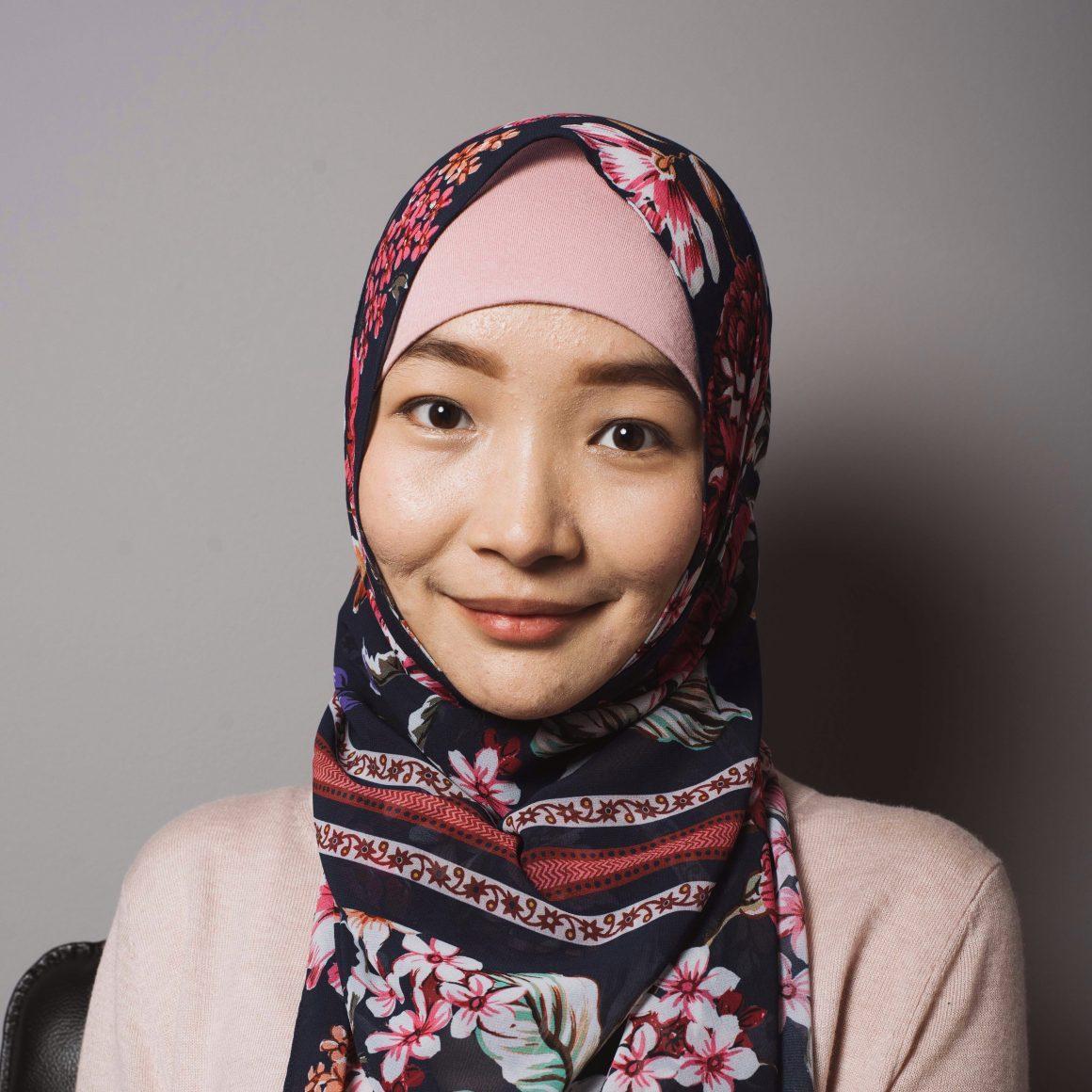
Aida Naizabekova is a researcher interested in gender, media, and public policy. She previously interned at leading Australian communication agencies and is currently a Public Relations Specialist at a leading IT company developing socially significant startups for positive social impact in Kazakhstan. She holds a MA in Strategic Public Relations from the University of Sydney, Australia (2018) and a BH in Foreign Philology from Al-Farabi Kazakh National University.
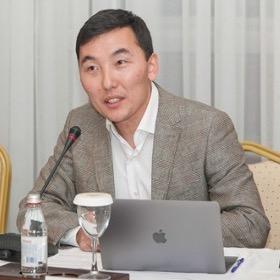
Zhaslan Nurbayev is a PhD / Candidate of Sciences in History and Associate Professor in the Department of Regional Studies of L.N. Gumilev Eurasian National University. In 2014-2015, he completed an internship under the Bolashak Scholarship program at the George Washington University, focusing on “Political Problems of International Relations and Global Development.” Between 2015 and 2019, he participated in expert meetings within the framework of the project “IQ-Club of Russia and Kazakhstan: Development of Expert Dialogue between the Border Regions of the EAEU.” He is a graduate of the Soros Foundation Kazakhstan Public Policy Initiative, where he researched ungraded schools in Kazakhstan. In 2019, he took part in the Central Asian School of Analysts Cabar. Asia, implemented by IWPR, together with the OSCE Academy. His research interests include the history of religions, social policy of the Republic of Kazakhstan, and education reform.

Anastassiya Reshetnyak holds a BA and MA in Area Studies from al-Farabi Kazakh National University (Almaty). She is currently a PhD student at L.N. Gumilev Eurasian National University (Nur-Sultan). Her research interests include the prevention of terrorism and violent extremism, societal security, and youth policy. She works at KazISS under the President of the Republic of Kazakhstan; she is also a part of PaperLab Research Group. Anastassiya has worked with UN institutions (UNDP, UNODC, IOM) as a national expert/consultant and participated in USAID projects on PVE. She is an alumna of the Soros Foundation Kazakhstan’s Public Policy Initiative Program (Almaty, Kazakhstan), the Leaders against Intolerance and Violent Extremism Train-the-Trainer Seminar (OSCE, Vienna, Austria), and internship programs at the Hudson Institute (Washington, D.C., US) and the Institute for National Security Studies (Tel Aviv, Israel). Anastassiya’s research at GWU focuses on improving youth resilience in the face of violent extremism in Kazakhstan.
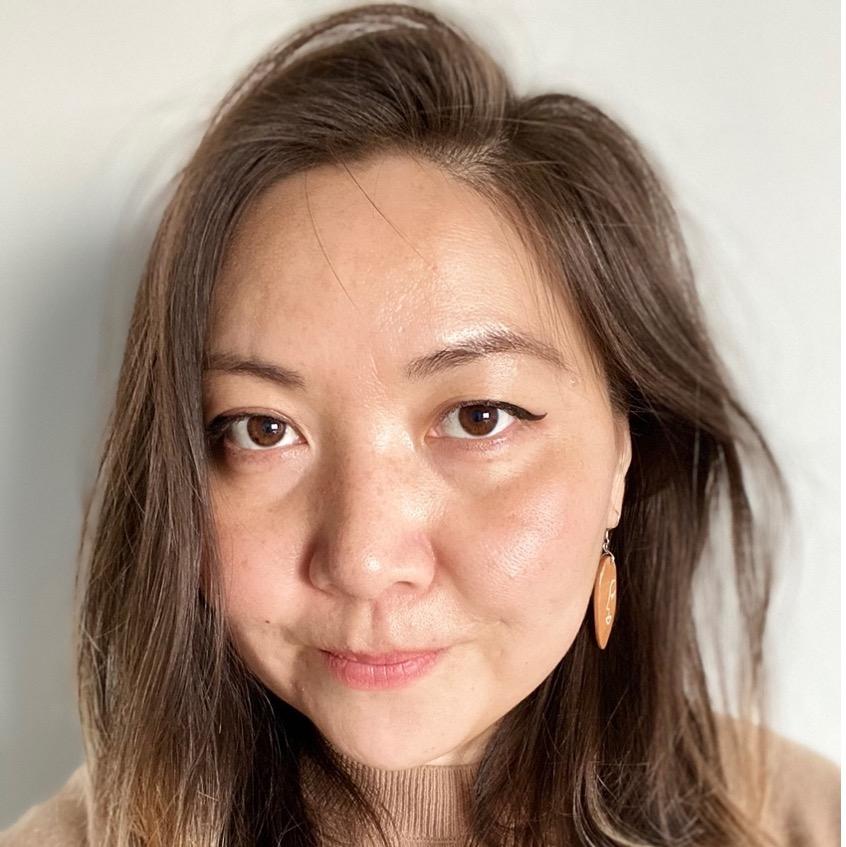
Syinat Sultanalieva is a Central Asian academic with a PhD from the University of Tsukuba, Japan. In her academic research, she studies feminist narratives and LGBTQ activism and narratives from a decolonial point of view. She is a recipient of the MEXT Japanese governmental scholarship, as well as the Fall 2020 CAAFP Fellowship at the George Washington University. Prior to academia, Syinat was actively involved in women’s rights and LGBTQ activism in Kyrgyzstan and Central Asia. She is currently working as a Central Asia Researcher at Human Rights Watch.
Fall 2019

Ilhom Aliyev

Nafissa Insebayeva
Choosing Your Battles: Different Languages of Kazakhstani Youth Activism

Aichurek Kurmanbekova

Lola Ulugova (Lolisanam)
Tajik Artists Lead Social Change: The Role of Art in Questioning Tajik Traditional Values
Spring 2019



Fall 2018


Snezhana Atanova

Daniyar Kosnazarov
Do-It-Yourself Activism: Youth, Social Media and Politics in Kazakhstan
Spring 2018

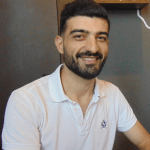
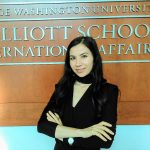
Fall 2017

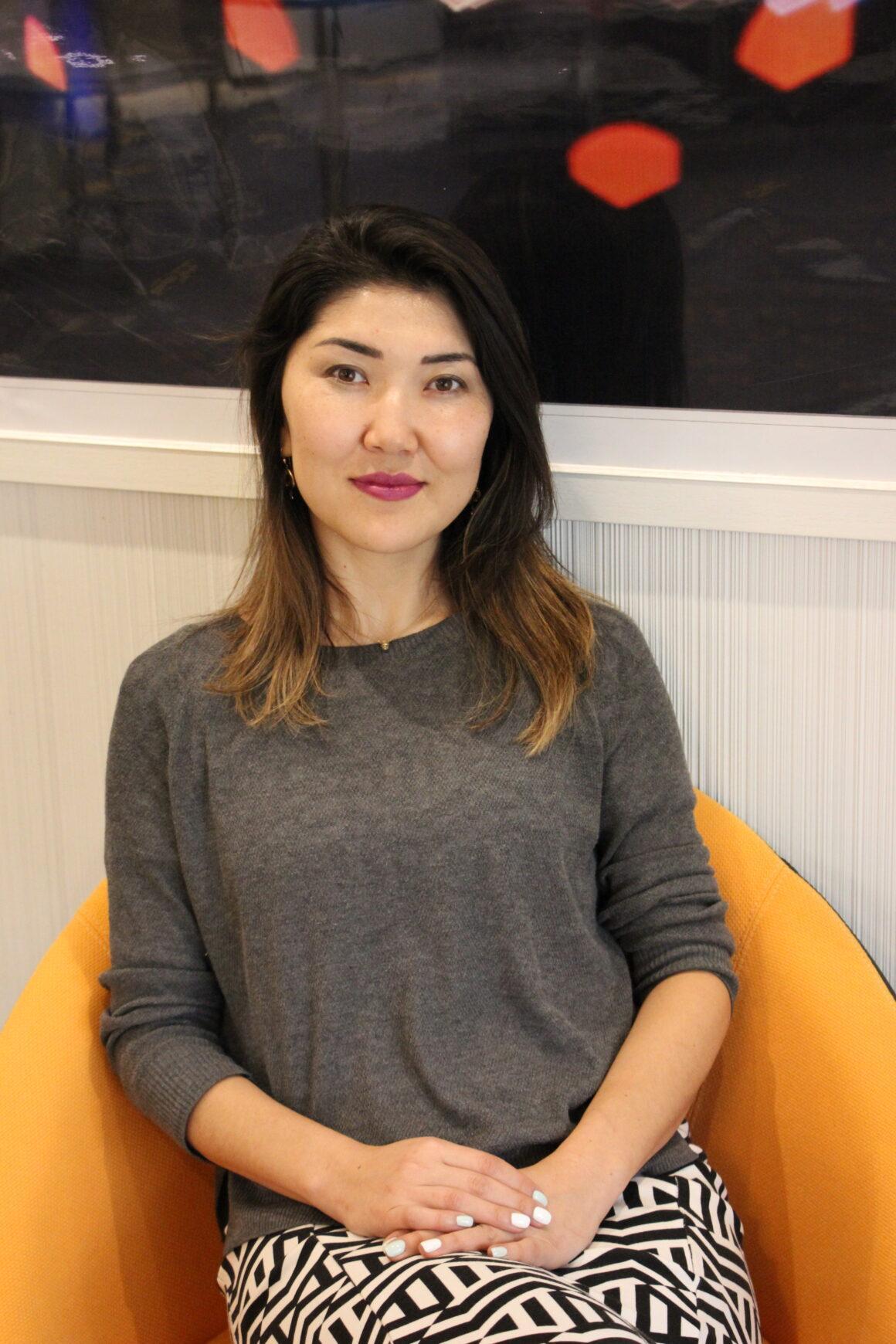


Spring 2017
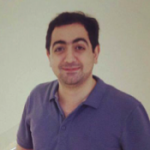

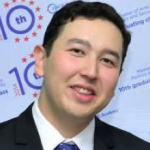
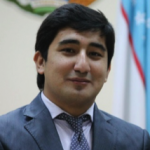
Fall 2016
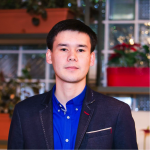

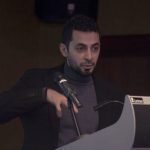

Spring 2016




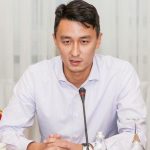
Fall 2015
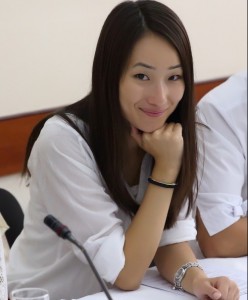
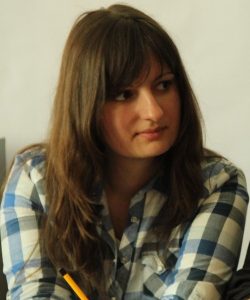
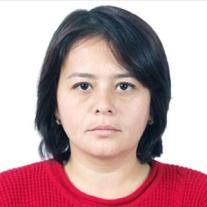
Dilorom Boqikhodjaeva
The Marginalization of Rural Women Entrepreneurs in Tajikistan

Spring 2015

Fall 2014


Spring 2014

Fall 2013

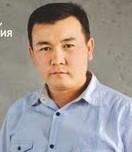
Spring 2013
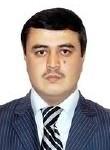
NEW VOICES FROM UZBEKISTAN FELLOWSHIP PROGRAM FELLOWS
Spring 2019

Eldar Asanov is a linguist and journalist whose research at GW is dedicated to the problems of mass media, censorship and public debate in Uzbekistan. Eldar has extensive experience working in Uzbek media in digital and print journalism as well as in television. He is also a founder of the popular scientific blog “Asanov Format”. He was an editor and project manager at the “Daryo.uz” news portal and participates in the Internews Network and EU joint grant on opposing violent extremism in Central Asia. His other research interests include nouvelle histoire of Central Asia, mass media, language policy, anthropology, and nation building in Central Asia. He earned a BA in Mass Media and an MA in Public Relations from National University of Uzbekistan. He completed a PhD in Applied Linguistics at Tashkent State University.

Donohon Abdugafurova researches women’s religious identity and motivations for hijab-wearing in Uzbekistan while at GW. She earned a BA in Uzbek Philology from Namangan State University and an MA in Curriculum and Instruction from the University of Wyoming. Donohon is currently a PhD Candidate (ABD) in the Islamic Civilizations Studies Program at Emory University. Her research interests are related to gender, Central Asian intellectual history, Sufism, women’s literature and life writing, education, upbringing and ethics in Uzbek society. Her articles are published in Central Asian Affairs, The Journal of Georgetown Gender and Law, and others.

Sherzod Eraliev analyzes the impact of return migration of highly-skilled Uzbeks on socio-political changes in Uzbekistan while at GW. Sherzod is currently a postdoctoral researcher at the Aleksanteri Institute of the University of Helsinki where he is a member of the research team Migration, Shadow Economy and Parallel Legal Orders in Russia. He has extensive work experience with local media and international organizations in Uzbekistan including UNDP. His research interests include migration policies, migration regimes, skilled migration, migration and religion, and politics in Central Asia/Eurasia. He received his MA from the University of Manchester, UK, and PhD from the University of Tsukuba, Japan.

Fotima Israilova researches female entrepreneurs as the next wave of economic success in Uzbekistan while at GW. Fotima argues that women are key to reducing income inequality and growing the Uzbek economy. She works for the United Nations Development Program in Tashkent. She earned a BA in Business Administration from Westminster International University in Tashkent, Uzbekistan.

Firdavs Navruzov is an education leader and expert researching private sector education in Uzbekistan while at GW. In Uzbekistan Firdavs manages the language and tutoring school “LTC Leader” and a private school “The Knowledge Academy”. He participated in the Edmund S. Muskie Internship Program in 2015 at the US Department of Education. He earned a BA and MA in English Philology and Literary Criticism from Bukhara State University, and an MA in Teaching English as a Second Language from Minnesota State University on a Fulbright Foreign Student Fellowship.

Bakhrom Radjabov focuses on the application of public sector innovations in the Eurasian region and during his stay at GW examines social innovations in local governments and communities in Uzbekistan.Previously Bakhrom worked as a Senior Administrative Assistant at OSCE/ODIHR Limited Election Observation Mission to the Republic of Uzbekistan. From 2012-2014 he worked at UNDP in Uzbekistan where he led programmatic efforts in the areas of public outreach and promotion of social innovation in Uzbekistan. He holds an MA in International Studies from the University of Tsukuba, Japan, and an MA in Global Political Economy from the University of Kassel in Germany. He is currently completing his Ph.D. at the University of Tsukuba. on Critical Analysis of UNDP Supported Social Innovations in Governance: Case Studies of Armenia, Ukraine and Uzbekistan.

Dilnoza Ubaydullaeva is an education expert and researcher who studies trends in internationalization of higher education in Uzbekistan while at GW. Dilnoza’s focus is the proliferation of foreign university branch-campuses and their role in reforming the higher education sector. She earned an BA and an MA in English Philology and Linguistics at State University of World Languages, Uzbekistan. She also holds a MA in International Studies from the University of Tsukuba, Japan.
Publications

Surayyo Usmanova’s research while at GW explores opportunities for Uzbekistan’s new linkages for tourism as factors for economic development and integration into the international community. Surayyo teaches Public International Law and International Tourism Law at the University of World Economy and Diplomacy, where she also leads the Council of Youth Scientists for International Law Faculty in Uzbekistan. Her research interests include international security law, Muslim Law, international-legal aspects of tourism and legal issues of parliamentary diplomacy. She earned a BA in International Law and an MA in Diplomatic and Consular Law at the University of World Economy and Diplomacy, where she is currently a PhD candidate in International Law.

Kamilla Zakirova’s research at GWU will examine how integrating minorities and vulnerable groups will improve human capital in Uzbekistan. Kamilla has worked for the Eurasia Foundation with the Uzbekistan team since 2016, focusing on vulnerable groups and minorities. Her experience includes working for a leading telecommunication company in Uzbekistan, engagement with U.S. Mission to the OSCE, and consulting a Washington, DC based think tank on counter terrorism. She earned a BA from Tashkent University of Information Technology.
ll
ALUMNI SPOTLIGHTS

Karlygash Kabatova (The Central Asia-Azerbaijan Fellowship Program, Fall 2017)
Karlygash Kabatova is a researcher and advocate for youth sexuality and gender education in Kazakhstan. She has been studying the topic since 2017, both independently and while at the Central Asia-Azerbaijan Fellowship Program (George Washington University, U.S.) and The John Smith Programme for Central Asia (UK). In 2018 Karlygash founded and runs UyatEmes.kz — an educational project to help young people and parents to learn about healthy relationships, sexual and reproductive health and rights that she continues to run. Karlygash is also a member of PaperLab (a public policy research group based in Astana, Kazakhstan), where she is involved in applied research and project coordination. Karlygash holds an MA in Politics and Security (Central Asia) from the OSCE Academy in Bishkek and is an alumna of the Soros Foundation/International Centre for Policy Advocacy Public Policy fellowship program. Her research interests include sexuality education, gender issues, and human rights.
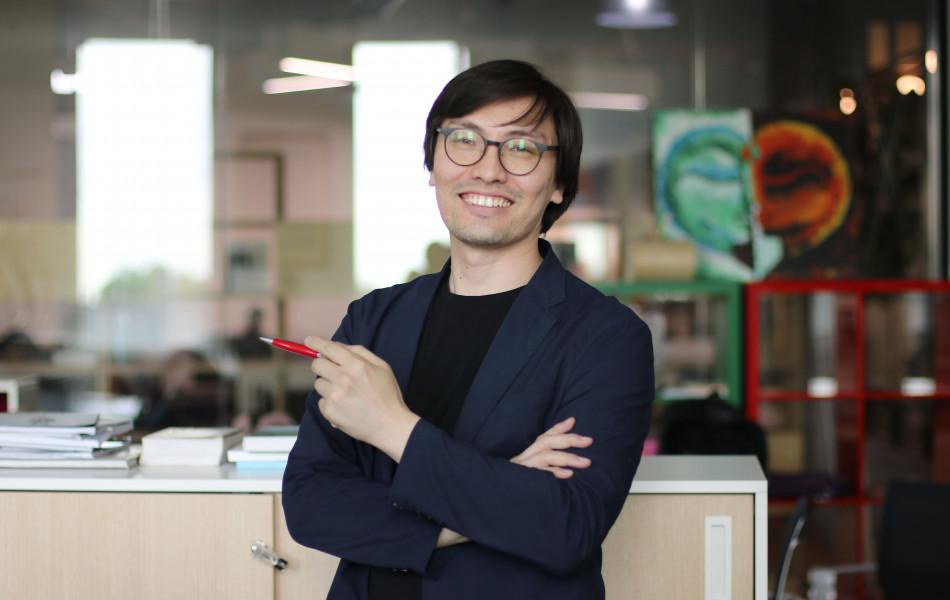
Daniyar Kosnazarov (The Central Asia-Azerbaijan Fellowship Program, Fall 2018)
Daniyar Kosnazarov is the Advisor to the President of Almaty Management University and was formerly Chief Editor of the progressive media outlet Steppe. He has experience working in both the government and private think tanks in Kazakhstan, and previously served as Chair of the Department of Strategic Analysis at Narxoz University, evaluating strategy implementation. He holds an MA in International Relations and Regional Studies from Tsukuba University, Japan (2012), and a BA in International Relations from Selcuk University, Turkey (2009).
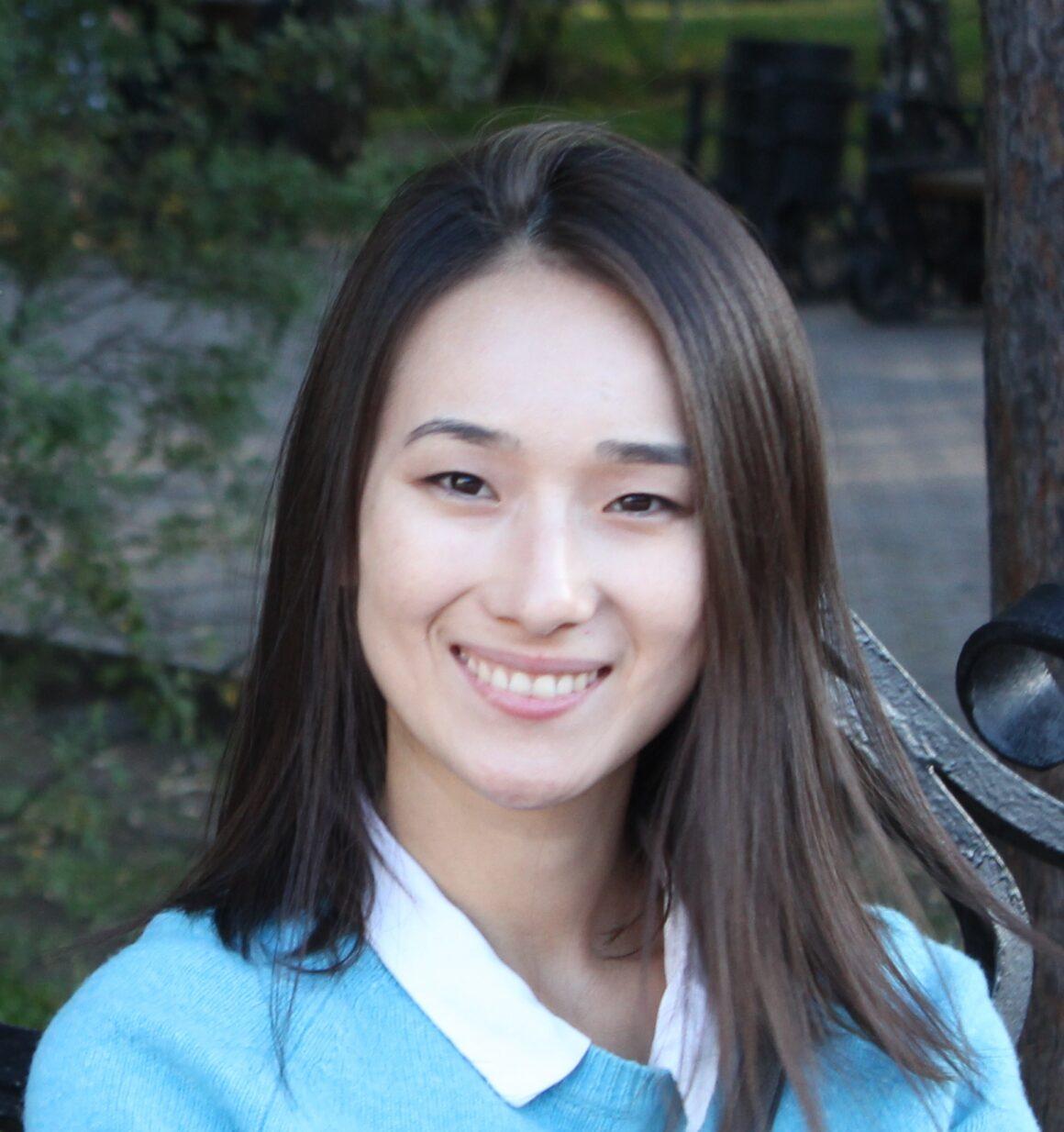
Malika Toqmadi (The Central Asia-Azerbaijan Fellowship Program, Fall 2015)
Malika Toqmadi holds an MA in Politics and Security in Central Asia from the OSCE Academy in Bishkek, Kyrgyzstan, and an MA in Global and European Security from the University of Geneva, Switzerland. Malika is a co-founder of PaperLab, a public policy research center based in Kazakhstan. Previously, she was a visiting scholar at the Norwegian Institute of International Affairs (NUPI), Oslo, Norway, and the George Washington University, Washington, DC, USA, and worked with the International Organization for Migration (IOM) and the World Bank. She co-edited “Kazakhstan’s Shadow Report to the UN on the Observance of the International Covenant on Economic, Social and Cultural Rights” (ICESCR) and was a contributing author of the Freedom House’s “Nations in Transit”report in 2018-2021.
Publications
Nations in Transit Kazakhstan – 2020
Freedom House, 2020
Регистрация по месту жительства и безопасность человека в Казахстане
Фонд Сорос-Казахстан, 2020
Мифы о миграции в Казахстане
FactCheck.kz, 2018
Nations in Transit Kazakhstan – 2018
Freedom House, 2018
Музеи: в поисках новой модели
(в соавторстве с Александрой Цай)
Фонд Сорос-Казахстан, 2018
Propiska as a Tool of Discrimination in Central Asia
Университет Джорджа Вашингтона, 2016
Пути реформирования системы регистрации населения по месту проживания в РК
Фонд Сорос-Казахстан, 2015
10 причин отменить прописку в Казахстане
Vlast.kz, 2014
Rise of the Dragon: Xinjiang and Central Asia in Chinese Foreign Policy
Connections, 2014

Bakhrom Radjabov (New Voices from Uzbekistan Fellowship Program, Spring 2019)
Dr. Radjabov is an Adjunct Professor at Webster University (Tashkent campus). He is an epert on social innovations, political economy and international development. He was trained in social entrepreneurship and humanitarian innovations at the Brown International Advanced Research Institutes (BIARI), Brown University and in public policy at the Central Asian Program, Elliott School of International Affairs, GWU. He has also received prestigious scholarships from the German and Japanese governments, and participated in various international programs run by the U.S. State Department and the Rumsfeld Foundation.
Publications
Uzanalytics: Ижтимоий инновация ҳамкорлик дегани Баҳром, сиз “ижтимоий инновация” (social innovation) тушунчаси ва унинг пост-Совет мамлакатларида татбиқ қилиш усуллари ҳақида илмий иш олиб боргансиз. Аввало, “ижтимоий инновация” тушунчасига тўхталиб ўтсак, у нима ва қандай шаклларга эга? Мисоллар тариқасида тушунтириб ўтсангиз.
CAAN: Что такое социальные переводы? Пример узбекских студентов в Германии и Японии Термин «социальные» переводы предложила в своей книге 2001 года «The Transnational Villagers («Транснациональные жители») гарвардский социолог Пегги Левитт, чтобы привлечь внимание к тому факту, что мигранты отправляют домой больше, чем деньги. Она выделила, по крайней мере, четыре типа социальных переводов – нормы, практики, идентичности и социальный капитал, которые пересылали мигранты в Бостоне себе домой – в деревню в Доминиканской Республике.
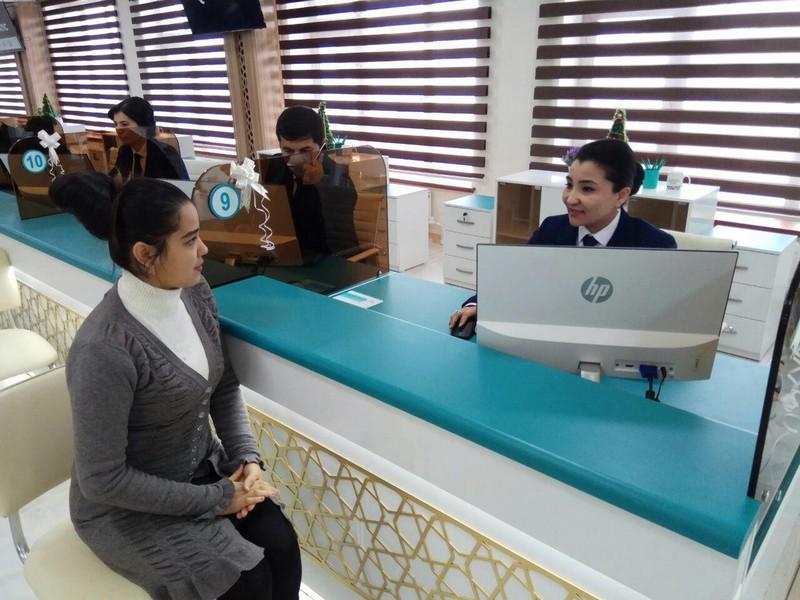
Are Innovations in the Public Sector of Uzbekistan Real? CABAR.asia
«The development and implementation of innovations in public administration remains the prerogative of the government; citizens, non-governmental organizations and other actors are not sufficiently involved in this process»,- mentioned political economist Bakhrom Radjabov, in his article for CABAR.asia.
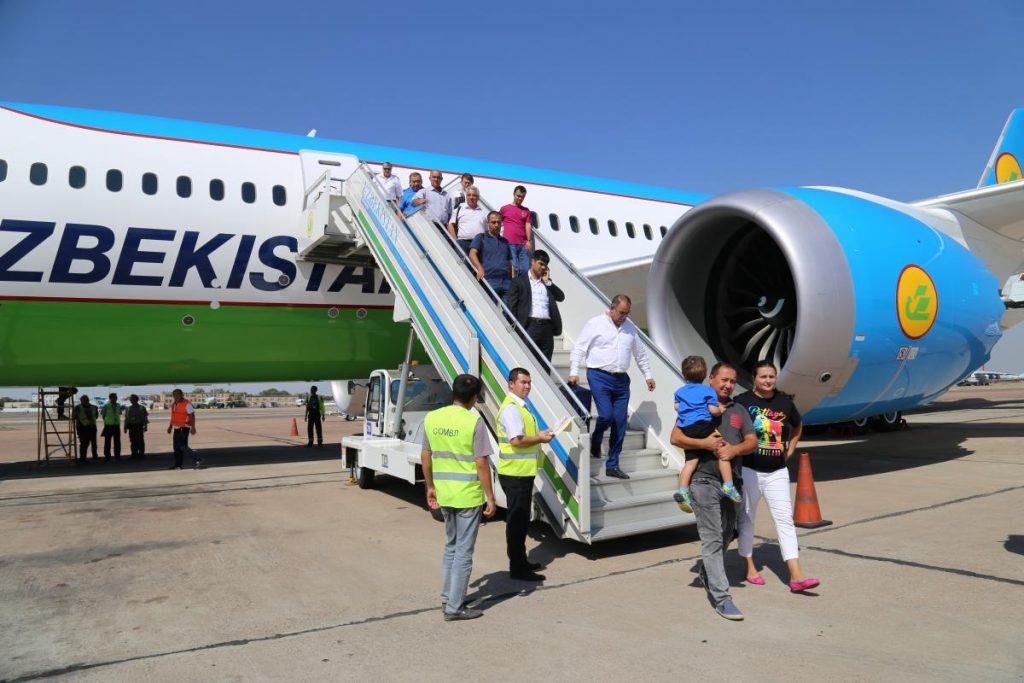
Aviation Reforms in Uzbekistan: New Yet Old? CABAR.asia
“If the government of Uzbekistan truly wished to liberalize the aviation industry, it needs to renounce the support for the national air carrier,” said political economist Bakhrom Radjabov in an article just for CABAR.asia.

Post-COVID-19: Challenges and Opportunities for Central Asia CACI Analyst
Since January, COVID-19 (coronavirus) has reached the level of a global pandemic. At first, some Central Asian republics seemed to be virus-free islands with zero confirmed infection cases. Afghanistan confirmed its first COVID-19 case on February 24, followed by a closure of the borders with other Central Asian republics. Kazakhstan discovered its first cases of COVID-19 on March 13, and Uzbekistan on March 15.
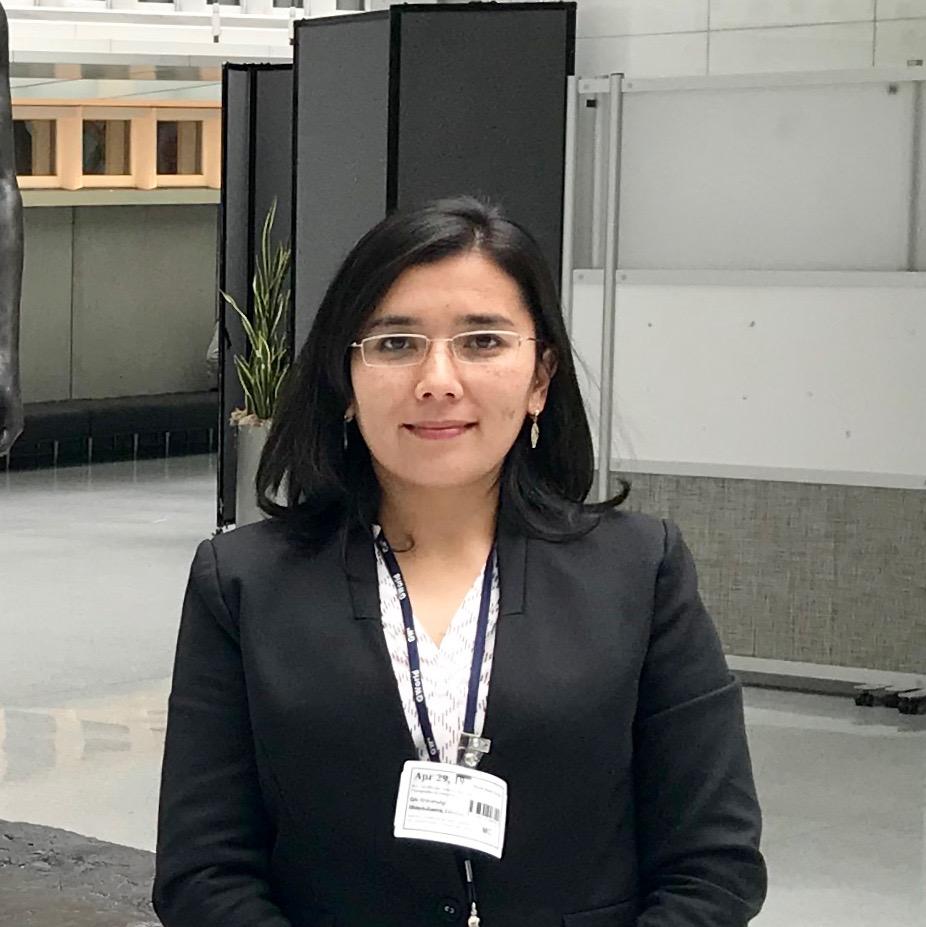
Dilnoza Ubaydullaeva (New Voices from Uzbekistan Fellowship Program, Spring 2019)
Dilnoza is an early career researcher and PhD candidate in Political Sciences & International Relations at the Australian National University. Dilnoza’s prior professional experience as a former lecturer and as UNICEF staff member in Central Asia has provided her with a unique combination of research and policy development skills. Dilnoza has been a Visiting Research Fellow at the Central Asia Program of Elliott School of International Affairs, George Washington University, and Tubingen University, Germany. For her teaching and tutoring at ANU, she was awarded the title of Associate Fellow of the UK Higher Education Academy. Dilnoza also an MA in International Studies from Tsukuba University, Japan. Her MA thesis on shadow education received the “Outstanding Thesis Award” at Tsukuba University. Dilnoza also holds an MA (with distinction) in English Linguistics and BA (with distinction) in teaching English as a Foreign Language from the Uzbekistan State World Languages University. Dilnoza has published articles on civil society, higher education politics and internationalization.
Publications
The democratization of higher education (HE) has been interpreted from various perspectives in many country-specific case studies. Yet, it has been overlooked that in authoritarian regimes the democratization of HE may involve the development of freedom of expression, an element taken for granted in democratic societies. Growing research on the implications of COVID-19 on HE fails to cover the emergence of democratization of HE in the form of freedom of expression practiced by university students. This research examines post-Soviet Uzbekistan to analyse how the practising of freedom of expression emerged among the student body during the pandemic era in the country and how the Uzbek government responded to and resolved the matter. Based on this case, it is argued that in authoritarian states the HE democratization framework can include the development of freedom of expression in the form of student protests that, in this article’s case, emerge as concomitant to the pandemic. Read more
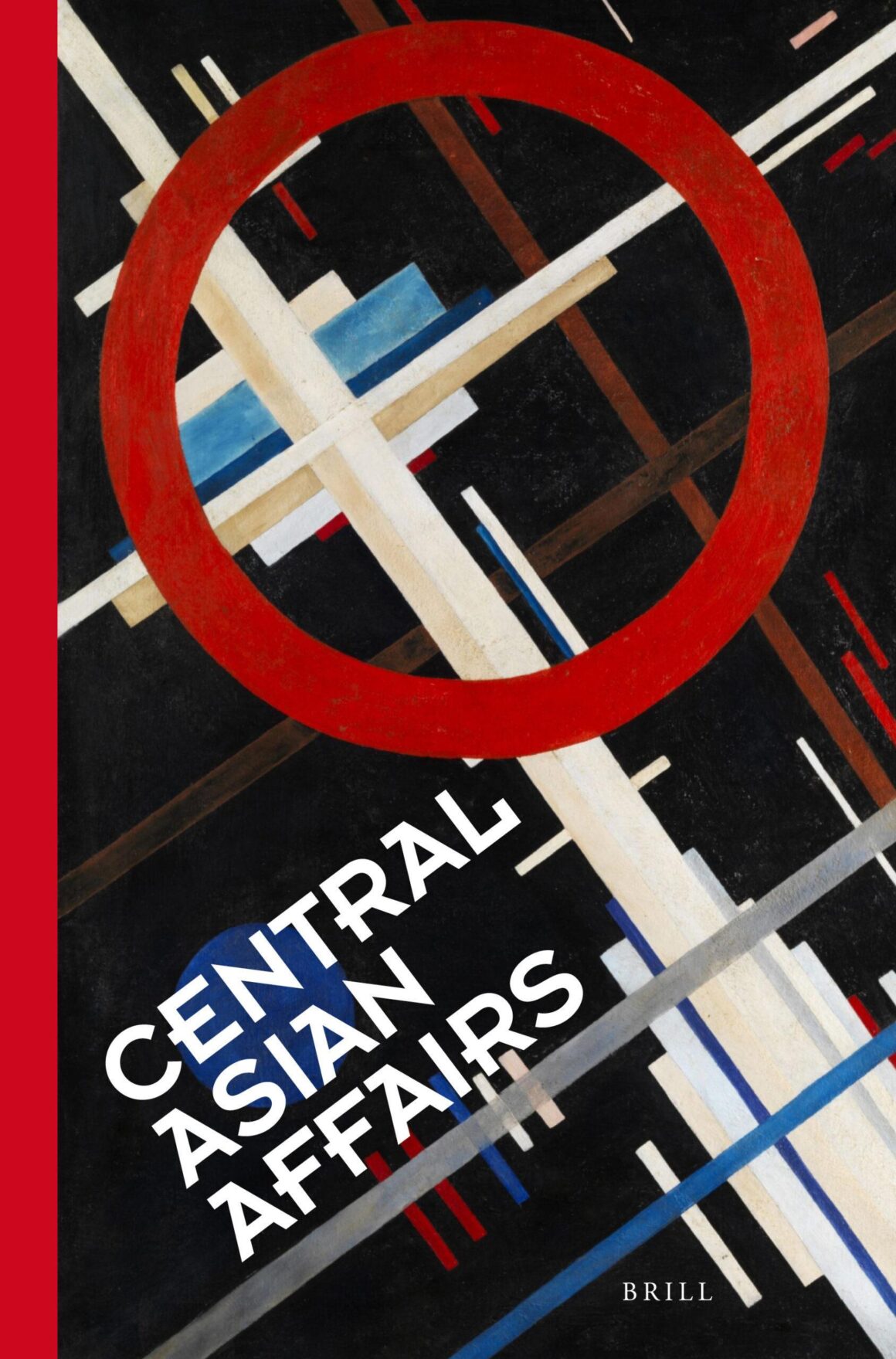
Volume 7, Issue 2
July, 2020
“Franchise” Branch Campuses in Uzbekistan: The Internationalisation of Higher Education as a Solution?
Internationalization transformed the way Higher Education (HE) is provided. Used correctly, internationalization can bring a useful exchange of services and resources into a country’s HE sector. Although there is a growing body of research on HE internationalization broadly, current scholarship overlooks the correlation of excessive reliance on opening of foreign university branches as a way to internationalize the HE sector and the development of the local HE system. This research thus provides the first insights into how the internationalization of HE may not necessarily solve a developing country’s problems in the local HE sector. Using the case of Uzbekistan, it argues that, in the absence of systematic reforms in the local HE system, HE reform that over-relies on the imported internationalization in the form of foreign university branches is not sustainable. Such “franchise” or “imported” internationalization does not contribute to the development of local HE system.

Volume 7, Issue 4
March, 2021
Political Liberalization and Emerging Civil Society in Uzbekistan: The Cases of Public Reaction to Demolition Program and the Use of Forced Labor
Conventional wisdom highlights civil society as an integral component of a democratic society. Due to the dominance of the state in all aspects of life, civil society was largely absent in Uzbekistan until the change of government in 2016. The new President Mirziyoyev’s liberalization policy towards media gave birth to a strong group of opinion formers visible on social media platforms, otherwise known as “bloggers”. This paper seeks to identify how Mirziyoyev’s liberalization policy affects Uzbekistan’s path to consolidate its democracy. It argues that the recent political liberalization showed early signs of the emergence of civil society groups. To support this argument, the paper uses the case of two unrelated incidents: large scale demolition of people’s properties by the khokimiyat in Urganch, and forced labor of public servants in the Bukhara region.
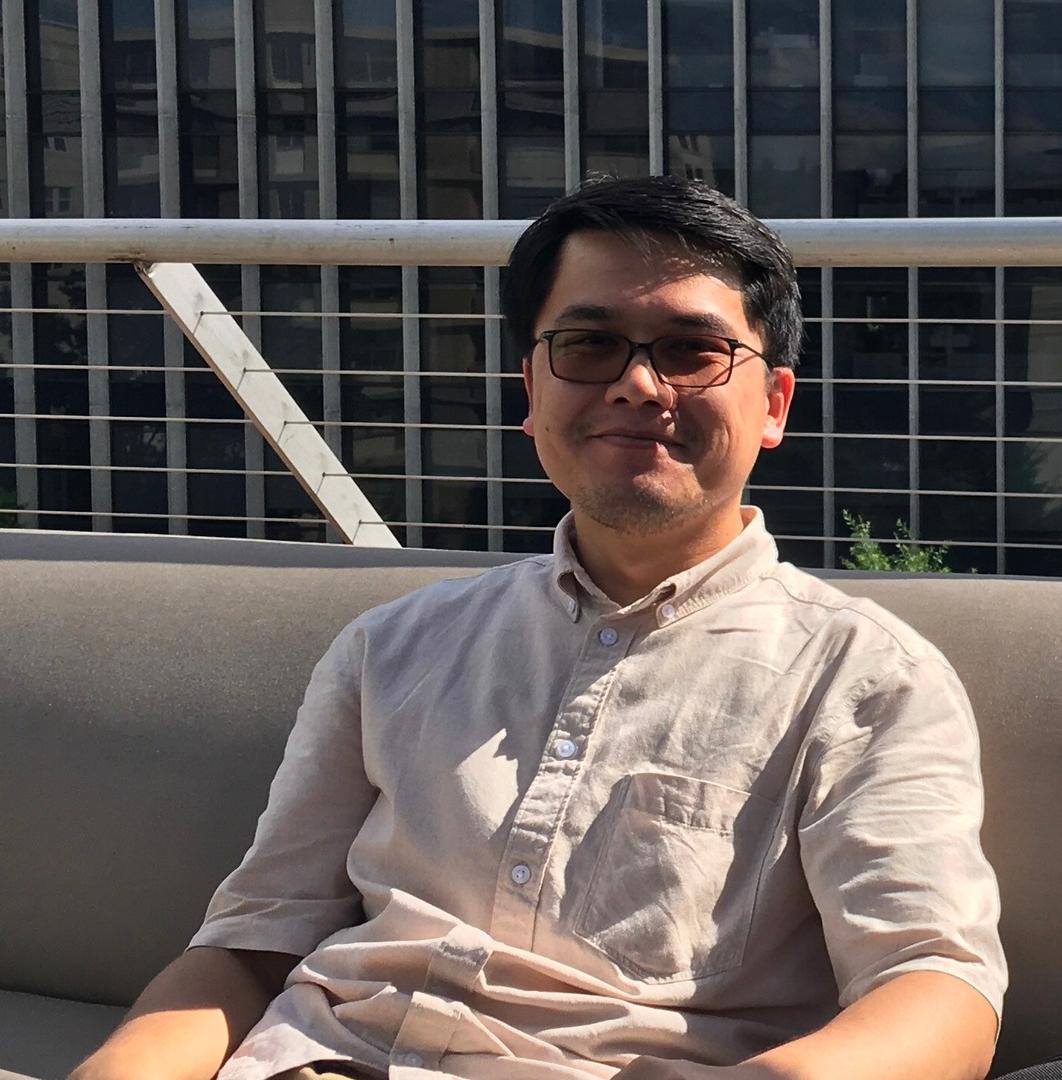
Elmurat Ashiraliev (The Central Asia-Azerbaijan Fellowship Program, Spring 2019)
Elmurat Ashiraliev is currently an independent researcher. He was a visiting fellow at CAP in Spring 2019. Elmurat holds an MA in Central Asian Studies from AUCA and is interested in religion in Central Asia.
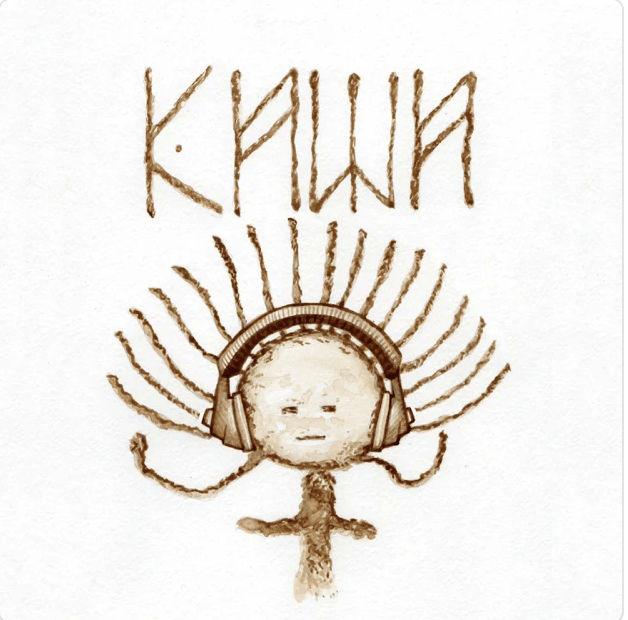
Check out the second season of Elmurat’s podcast series called Киши (Human) on religious diversity in Kyrgyzstan. “Kishi means Human in Kyrgyz. It is a podcast about us, humans. Welcome to the second season! In this season we will explore religious life of Kyrgyz people.”
Publications
Kyrgyzstan Attempts to Isolate Local Islam Kyrgyz authorities profess a separation of state and religion while also paradoxically preferring one version of Islam. “It is impossible to isolate Islam within the borders of a particular country and there is no necessity for doing so. The Kyrgyz government should handle all its citizens equally regardless of their diverse religious backgrounds, instead of supporting one part and mocking the other.”
In Kyrgyz
“Журналисттер” КБ “Кыргыз журналистикасынын азыркы абалы кандай?” изилдөөсүн даярдап бүттү – This paper explores how coronavirus pandemic impacted Kyrgyz journalism.
In a special collection which explores the problems of migrants and some aspects of the migration process in Kyrgyzstan, Elmurat served as Kyrgyz editor.
Exploratory essay Changing Perceptions of Sulayman Mountain travels through time and tries to explore the role of revered mountain in Osh as a public space.
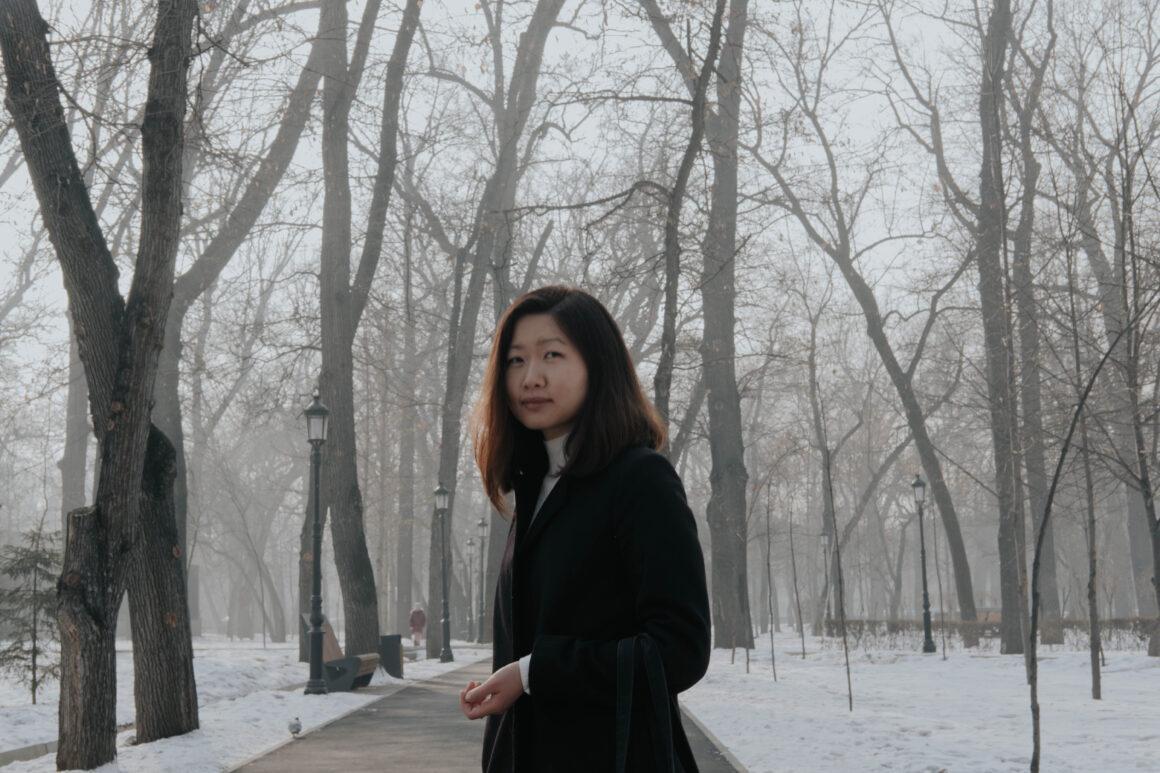
Alexandra Tsay (The Central Asia-Azerbaijan Fellowship Program, Spring 2017)
Alexandra Tsay is an independent research fellow in cultural studies and an art curator. She is interested in contemporary art in the transitional societies of Central Asia. Alexandra is an alumni of the University of Warwick (UK), where she earned an MA in International Cultural Policy and Management. She curated exhibitions and programmed festivals in Almaty, Kazakhstan. During her Spring 2017 fellowship at George Washington University, Alexandra explored the contemporary art as a cultural public sphere in Kazakhstan. Her text “Contemporary Art as a Public Forum in Kazakhstan” was published in The Nazarbayev Generation: Youth in Kazakhstan edited by Marlene Laruelle, Lexington Books, 2019. Alexandra is a co-editor, with Zhulduzbek Abylkhozhin and Mikhail Akulov, of Stalinism in Kazakhstan: History, Memory, and Representation (Lexington Books, 2021).
Virtual Exhibition: Living Memory
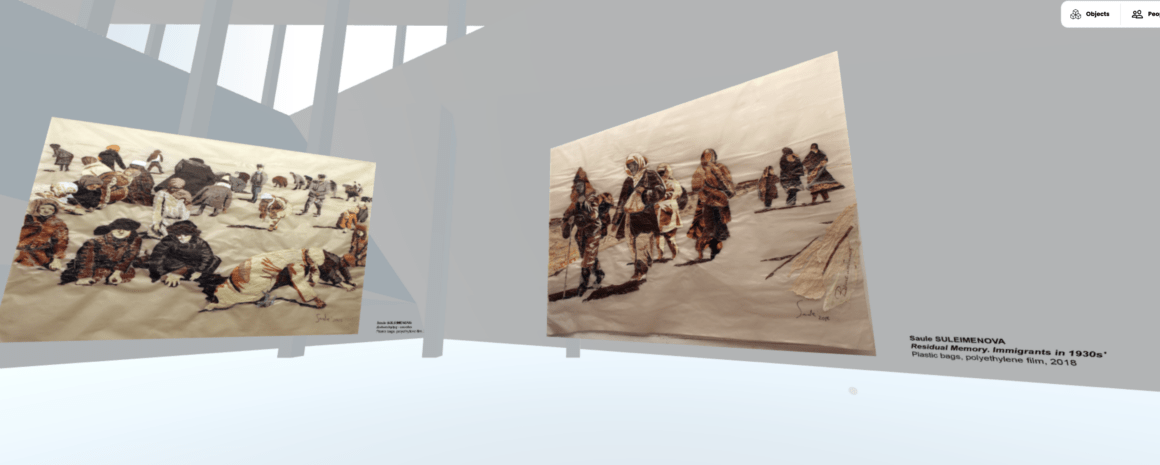
The exhibition “Living Memory” is a continuation of the book Stalinism in Kazakhstan: History, Memory, Representation edited by Zhulduzbek Abylkhozhin, Mikhail Akulov, and Alexandra Tsay, Lexington Books, 2021. It is an approach to the study of collective memory and trauma through artistic media, an approach that overcomes text and employs what text cannot accommodate. This exhibition is devoted to the study of collective memory of traumatic past in Kazakhstan, a past that still needs to be addressed, healed, reflected upon and remembered. The power relations, political violence, imposed silence and memory of innocent victims are issues addressed and raised through artistic practices as an attempt to create a basis for cultural memory.
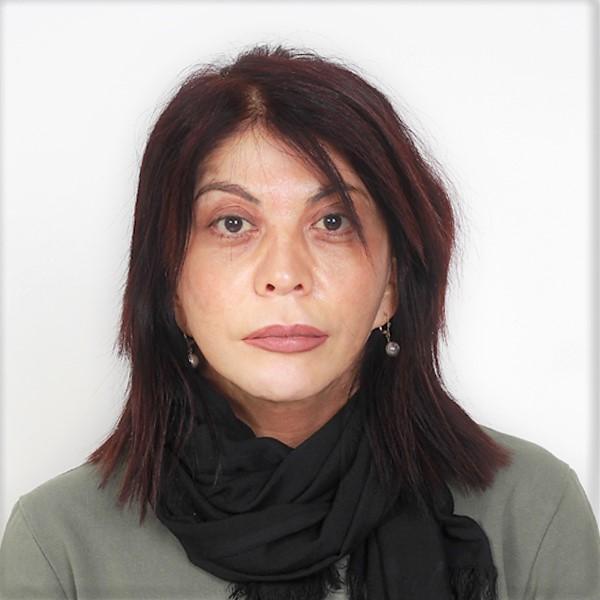
Lolisanam Ulugova (The Central Asia-Azerbaijan Fellowship Program, Fall 2019)
Lolisanam Ulugova has been an art manager/activist/producer in Tajikistan since 2000. She has contributed to writing and producing the nation’s first 3D animated film, a short designed to promote awareness of environmental issues among children. She holds a Master’s degree from the University of Turin, Italy, and an undergraduate degree in Russian Language and Literature. She has co-produced the documentary “After the Curtain” with Emelie Mahdavian (USA) (2012-2016), covering the intimate stories of a few Tajik women dancers, as well as a “Youth for Laws Supremacy” (2019) performance that indicated her protest torture and violence. She is the author of many articles/essays/analyses that have been published in Tajikistan and abroad. Currently she is producing two art works: an animated film telling the story of a sexually abused child, “Khuwaydo”; and a documentary, “Dancing Men,” about the stigma of male dancers. They are booth due to be released in June 2021.
Videography
This animation film is based a real tragedy of a child who was murdered by an antagonist. The film declares that the wisdom and compassion of Nature trumps the imperfection of people, thus revoking their superiority to it. People are ordinary species in our Universe and there is no need to overpower Nature, rather it is better to learn to stay nonviolent and constructive in our common place
This documentary, is a video portrait of Tajik dancers which shows ballet, the traditional art of dancing, and the entertainment business. The video uncovers the truth of their work and daily lives.
Publications
Feminism and Central Asia – What Went Wrong? – Feminism is not adequately perceived in Central Asian societies. Some consider it as a threat to the existing traditions of the patriarchal foundation, when a woman (responsible for too many things in the family) can get out of control, damaging the nation in its demographic development…
Tajik Fashion and the Challenges of Achieving an International Breakthrough – recently, Tajikistan, with its rich aesthetic traditions, has seemingly made a breakthrough in the fashion arena with some great designers like Khurshed Sattorov (born in 1981), Nafisa Imronova (1991) …
Contemporary Art in Central Asia: An Interview with a Curator – Interview with Thibaut de Ruyter is a French architect, curator, and critic. His latest projects include a traveling exhibition for the Goethe Institute in Eastern Europe and Central Asia entitled “die …
Tajik Artists Lead Social Change: The Role of Art in Questioning Tajik Traditional Values – (CAAF Fellows Papers), January 2020
What do Theaters in Tajikistan Tell Us? – My recent visit to Tashkent (the capital of Uzbekistan) was marked by the exploration of several theaters. I saw two plays: The first, Zavtra (Tomorrow), was staged by Artyom Kim, …
ART PLOV CENTRAL ASIA – is a collaborative project of Central Asian artists. Lolisanam has written a few short essays about three Central Asian female artists: Marifat Davlatova (Tajikistan), Zarina Anvar Oripova (Tajikistan) and Nariste Alieva (Kyrgyzstan).
The Not-Naive Naivety Arts of Tajikistan – The history of modern Tajik art history rarely mentions the existence of a naive trend in the country’s fine arts. However, in her introduction to the publication Essays on the …
Гендерные различия в изобразительном искусстве Таджикистана: краткий анализ – изобразительное искусство зарождалось с возникновением государственности современного Таджикистана. Официально Таджикистан возник в 1925 году как автономия в составе Узбекистана и 1929 году как самостоятельная республика. В те же …
«Мальчик Воды» – символ эпохи. Параллели между картинами трилогии Бахтиёра Худойназарова – В конце прошлого года состоялась премьера полнометражного фильма Файзулло Файза «Бачаи Оби» («Мальчик Воды»), автором идеи которого является покойный режиссер Бахтиёр Худойназаров. Независимая исследовательница Лолисанам Улугова решила суммировать впечатление от трилогии Бахтиера Худойназарова.
Музыка для суфиев – Аслиддин Низомов, доктор искусствоведения из Таджикистана, написал на основе своей диссертации книгу – «Суфизм в контексте музыкальной культуры народов Центральной Азии» (Ирфон, 2000). Как пишет он, идеи суфизма нашли отражение …
Какими нам не надо быть. Отзыв на спектакль «Гунчишкон хам механданд» – Недавно в Молодежном театре им. Вахидова прошла премьера спектакля «Гунчишкон хам механданд» («Воробьи тоже смеются») режиссера Камариддина Мирзоева. Независимая исследовательница, арт-менеджер Лолисанам Улугованаписала о своих впечатлениях после спектакля.
«Мальчик Воды» – символ эпохи. Параллели между картинами трилогии Бахтиёра Худойназарова – Основу сюжета фильма «Бачаи Оби» составляет рассказ покойного Бахтиера Худойназарова, пятнадцать страниц которого уже были написаны самим режиссером.


